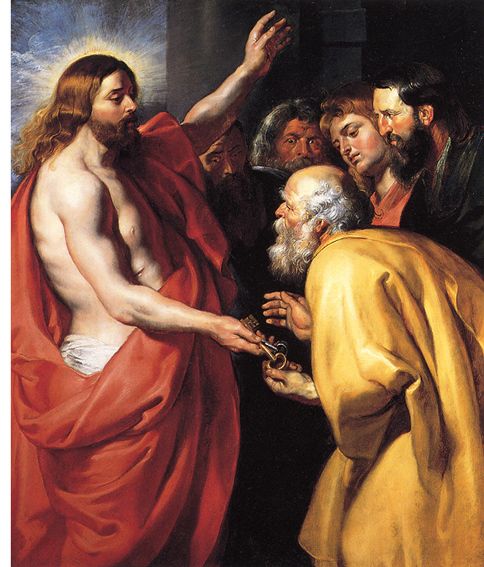THE PROCESS FOR MARRIED EPISCOPAL CLERGY SEEKING ORDINATION TO THE PRIESTHOOD IN THE ROMAN CATHOLIC CHURCH
The Steps of the Process
- The candidate, who is or was a married priest in the Episcopal Church or other continuing Anglican community, must be received into the Catholic Church.
- The candidate directs a request for consideration of his desire for priesthood and incardination to the Ordinary of the diocese of his choice, who becomes the sponsoring bishop. The candidate normally must have a Master of Divinity degree from an accredited seminary. In instances where a person has been ordained with lesser studies, the sponsoring bishop should consult with the Ecclesiastical Delegate.
- The sponsoring bishop appoints formation mentors to assist the candidate in the spiritual, intellectual, human, and pastoral dimensions of priestly formation. These mentors must be Catholic priests. For serious reasons, the sponsoring bishop may appoint an individual priest to oversee two or more of these specific areas of priestly formation. The mentors and those who assist him should be qualified and experienced in the areas of formation they oversee.
- The sponsoring bishop sends the name, address, email, fax, and phone number of the candidate and formation mentors to the Ecclesiastical Delegate.
- The candidate assembles his dossier. The dossier should be hard copy and also entirely digitally scanned.
- The sponsoring bishop sends two (2) hard copies and a digital copy of the dossier to the Ecclesiastical Delegate for the Pastoral Provision. Copies of seminary transcripts are also sent via email to the Faculty Chair.
- The Ecclesiastical Delegate examines the dossier for completeness and content, and if he is satisfied, he sends the dossier along with his own letter about the candidate to Rome by way of the Apostolic Nuncio.
- The Congregation will undertake an initial review of the dossier in a timely manner. It will then write to the Ecclesiastical Delegate with any questions or difficulties regarding the case. If there are no difficulties, the Congregation will indicate that the candidate can proceed to theological assessment and the beginning of studies.
- The candidate undergoes assessment at the Theological Faculty approved by the Ecclesiastical Delegate. The assessment will contain a full doctrinal evaluation of the candidate and a detailed description of the recommended program of intellectual formation in Catholic theology.
- The candidate begins his formation under the supervision of his mentors. The normal length of formation is two years.
- At the completion of the program of intellectual formation, the sponsoring bishop will notify the Ecclesiastical Delegate that the candidate is ready to take the certification examination, which consists of both written and oral. The Ecclesiastical Delegate will instruct the chair of the Theological Faculty to make the necessary arrangements.
- If the candidate passes the certification examination, the Ecclesiastical Delegate will notify the sponsoring bishop that the candidate has successfully completed his program of intellectual formation.
- At this time, the sponsoring bishop also will provide the Ecclesiastical Delegate with the evaluations and recommendations of those priests charged with the spiritual, human, and pastoral formation of the candidate and the sponsoring bishop’s personal evaluation and recommendation of the candidate.
- The Ecclesiastical Delegate will then notify the Congregation that the candidate has passed his certification examinations and has received positive evaluations in his spiritual, human, and pastoral formation from his mentors and from his sponsoring bishop, and the Ecclesiastical Delegate opinion about the candidate’s qualification for ordination.
- The Congregation, upon its positive evaluation of the petition, will present it to the Holy Father for his approval, and will inform the Ecclesiastical Delegate of the outcome.
- If the decision is positive, the rescript will be sent and the Ecclesiastical Delegate will immediately inform the sponsoring bishop that he may proceed to the ordination of the candidate, first to the Diaconate and then to the priesthood.
- The Congregation for the Doctrine of the Faith is to be notified shortly after the candidate is ordained. The notification is to contain the date and place of the ordination. If for some reason the ordination does not take place, this too is to be communicated to the Congregation.
Please note: These provisions apply in most cases, except when there are special considerations to be taken into account.
